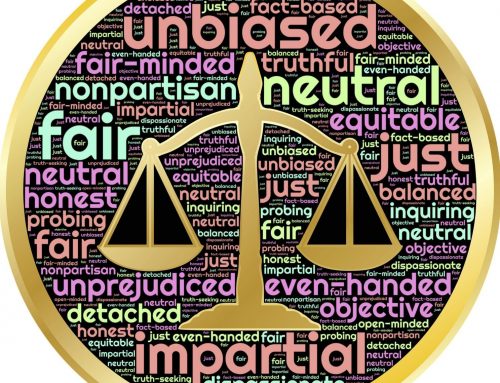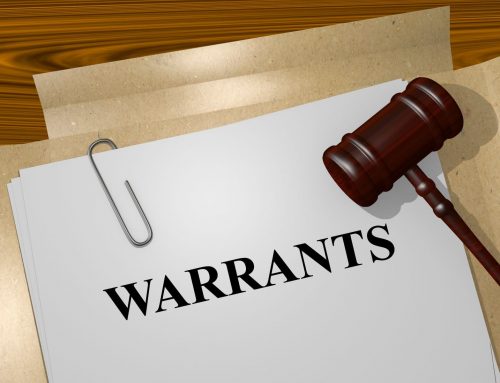Ben is arrested on suspicion of murdering a girl in the town. Ben is held in the county jail for over 24 hours without being charged. When his lawyer arrives, he tells the sheriff that since 24 hours have passed, Ben must either be charged or released.
The sheriff promptly charges Ben-who is actually innocent-of murder and holds him in the cell until the true culprit is caught several days later.
This storyline repeats itself in countless procedural cop shows and legal dramas. In shows like “Law and Order” and “NCIS,” a character is often arrested on suspicion of committing a crime and is held for 24 hours or more without being charged and without having a bail amount set.
Can this situation actually happen to you? If you’re held for 24 hours without being charged, is the jail really required to let you go?
We’ll answer this question below. By the end of this article, you should understand what your constitutional rights are if you’ve been arrested and how quickly you can get out of jail on bail.
The Right to a Speedy Trial
We have mentioned before that you can be arrested if there’s a warrant out for your arrest, if you’re suspected of committing a crime, or if an officer suspects that you’re on the verge of committing a crime. Soon after you’re arrested, you should be charged with a crime, and a judge should set your bail amount.
However, in spite of what you see on television, the state can hold you for much more than 24 hours without charging you and setting your bail amount.
Although the sixth amendment to the Constitution guarantees each arrested individual the right to a speedy trial, in most states, a “speedy trial” is defined as being charged and released on bail within 72 hours. Once the 72-hour period is up, you should be either charged with a crime or released.
Unfortunately, you don’t have the right to place a phone call during that 72-hour period, which can make it harder for individuals to actually be released within that time frame. After all, if you can’t call a lawyer, or a friend to post bail you might not be able to argue with officers for your release.
Most jails and officers use phone calls as a reward for good behavior. If you cooperate with the jail and officers, you’re more likely to get your phone call-or even multiple phone calls-within the first 24 hours of your arrest. If you cooperated with the officers, didn’t resist arrest, and were still denied a phone call during the full 72-hour period you were held, reach out to a lawyer soon after your release.
Some states set limits lower than 72 hours, Instead, these states usually only keeps adults in jail for either 36 hours or 48 hours.
If you were arrested with a warrant, you can only remain in jail for 36 hours before you’re brought before a court. If you were arrested without a warrant, you can only remain in jail for 48 hours without being brought before the court. Depending on the situation, 36 hours or 48 hours is the maximum amount you can be held-hopefully, you’ll be released before the full time is up.
Under the 36-, 48-, and 72-hour rules, holidays and Sundays don’t get counted into your hourly total. Jails also don’t include the actual day of your arrest in their hourly calculations. If you were arrested on a Friday night over Labor Day weekend, for instance, you won’t get released until Tuesday night under the 48- hour rule.
Juveniles suspected of committing a crime can be held even longer than adults. Sundays and Saturdays are excluded from their hourly count. If a minor were arrested on the Friday before Labor Day weekend, he or she might not be released until the following Wednesday.
The Right to Be Released
The Constitution also states that no one can be held in prison unlawfully, which is another reason most people can’t be held after 72 hours without being charged. If over 72 hours have passed and you still haven’t been charged, your lawyer can ask a judge for a writ of habeas corpus to ensure you either get released or charged.
Habeas corpus is Latin for “produce the body,” or, in other words, provide evidence that you have just cause for holding a person in jail. If a writ of habeas corpus is issued, the jail or arresting officer is required to release you and bring you to the judge who issued the writ. Once you arrive in court, either you’ll be released without being charged or a prosecutor will decide to file charges and the judge will set the bail.
Contact All N One Bail to Help Pay Your Bail
After you’ve been charged with a crime, the judge will release you on personal recognizance or set a bail amount. If you’re released on personal recognizance, you promise to show up for your court date without offering any collateral. On the other hand, if the judge sets a bail amount, you’ll have to pay the court the full bail amount or contact All N One Bail Bonds and pay 15% of the bail amount.
.We’ll ensure you don’t have to stay in jail any longer than you have to. Call 901-523-2245






